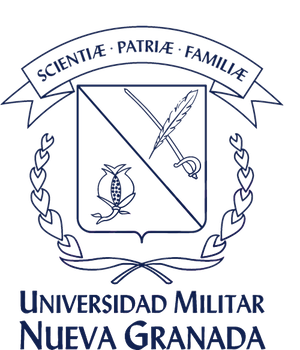Biocentric dimension of development for a comprehensive education
Abstract
This paper draws on different visions about development and post-development, as well as their alternatives, which allow us to make progress with the biocentric dimension of development, in answer to the current anthropocentric model, with basis on the Vandana Shiva (1995) female principle which has a close interdependence and interconnection between nature, women and men. We intend to contrast, on the one side, with the idea of biocentrism, which gives moral a space from the viewpoint of the human being, and on the other hand, to analyze some of the considerations that have been made in order to go beyond Kant`s categorical imperative, towards a relationship with nature but still with an anthropocentric view. After performing those analysis, which are related to the current model of development that is reflected on education, we use Krishnamurti (1950, 2008) thought, by emphasizing education as a philosophy of life for learning, and the biocentric dimension of development for a comprehensive education based on self-observation and for the times we live in the community of life, highlighting the responsibility we have as teachers and the challenges education centers, especially universities, have.
Downloads
References
Acosta, A. (2010). El Buen Vivir en el camino post-desarrollo, Una lectura desde la Constitución de Montecristi, Policy Paper, 9, Fundación Friedrich Ebert, FES-ILDIS – Octubre 2010, 6-36.
Escobar, A. (2005). El “postdesarrollo” como concepto y práctica social. En D. Mato (coord.), Políticas de economía, ambiente y sociedad en tiempos de globalización. Caracas: Facultad de Ciencias Económicas y Sociales, Universidad Central de Venezuela, pp. 17-31.
Jonas, H. (2004). El principio de responsabilidad ensayo de una ética para la civilización tecnológica. Barcelona: Herder.
Krishnamurti, J. (2008). Aprender es vivir, Cartas a las Escuelas. Madrid: Gaia Ediciones.
Krishnamurti, J. (1950). Un nuevo enfoque de la vida. México: Editorial Krishnamurti.
Latouche, S. (2009). Pequeño tratado del decrecimiento sereno. Barcelona: Icaria.
Max-Neef, M. (2006). Desarrollo a escala humana. Barcelona: Icaria.
Mies, M. Y Shiva, V. (1997). Ecofeminismo, Teoría, crítica y perspectiva. Barcelona: Icaria.
Morín, E. Ciurana, E. Y Motta, R. (2003). Educar en la Era Planetaria. Barcelona: Gedisa.
Naciones Unidas (1987). Nuestro futuro común: informe Brundtland. Comisión Mundial del Medio Ambiente y Desarrollo. Recuperado en enero 15 de 2014 de: http://daccess-dds-ny.un.org/doc/UNDOC/GEN/ N87/184/67/IMG/N8718467.pdf?OpenElement
Naciones Unidas (1993). Cuestiones relativas al desarrollo sostenible y la utilización de los recursos hídricos. Consejo Económico y social. Naciones Unidas. Recuperado el día 11 de julio de 2014 de: http://dac¬cess-dds-ny.un.org/doc/UNDOC/GEN/N93/077/53/ PDF/N9307753.pdf? OpenElement
Nussbaum, M. Y Amartya S. (1993). La calidad de vida. México: Fondo de Cultura Económica.
Nussbaum, M. (2011). Sin fines de lucro, Porque la democracia necesita de las humanidades. Buenos Aires: Katz.
Programa de las Naciones Unidas para el Desarrollo. PNUD (2014). El PDUD en acción. Disponible en: http://www.undp.org/content/undp/es/home/ourwork/capacitybuilding/about_capacity_development/
Riechmann, J, (2000). Un mundo vulnerable. Ensayos sobre ecología, ética y tecnociencia. Madrid: Los libros de la Catarata.
Rist, G. (2002). El desarrollo: historia de una creencia occidental. Madrid: Los libros de la Catarata.
Rostow, W. (1961). Las etapas del crecimiento económico, un manifiesto no comunista. México: Fondo de Cultura Económica.
Sen, A. (2000). Desarrollo y libertad. Barcelona: Planeta.
Shiva, V. (1995). Abrazar la vida Mujer, ecología y supervivencia. Madrid: horas y horas.













